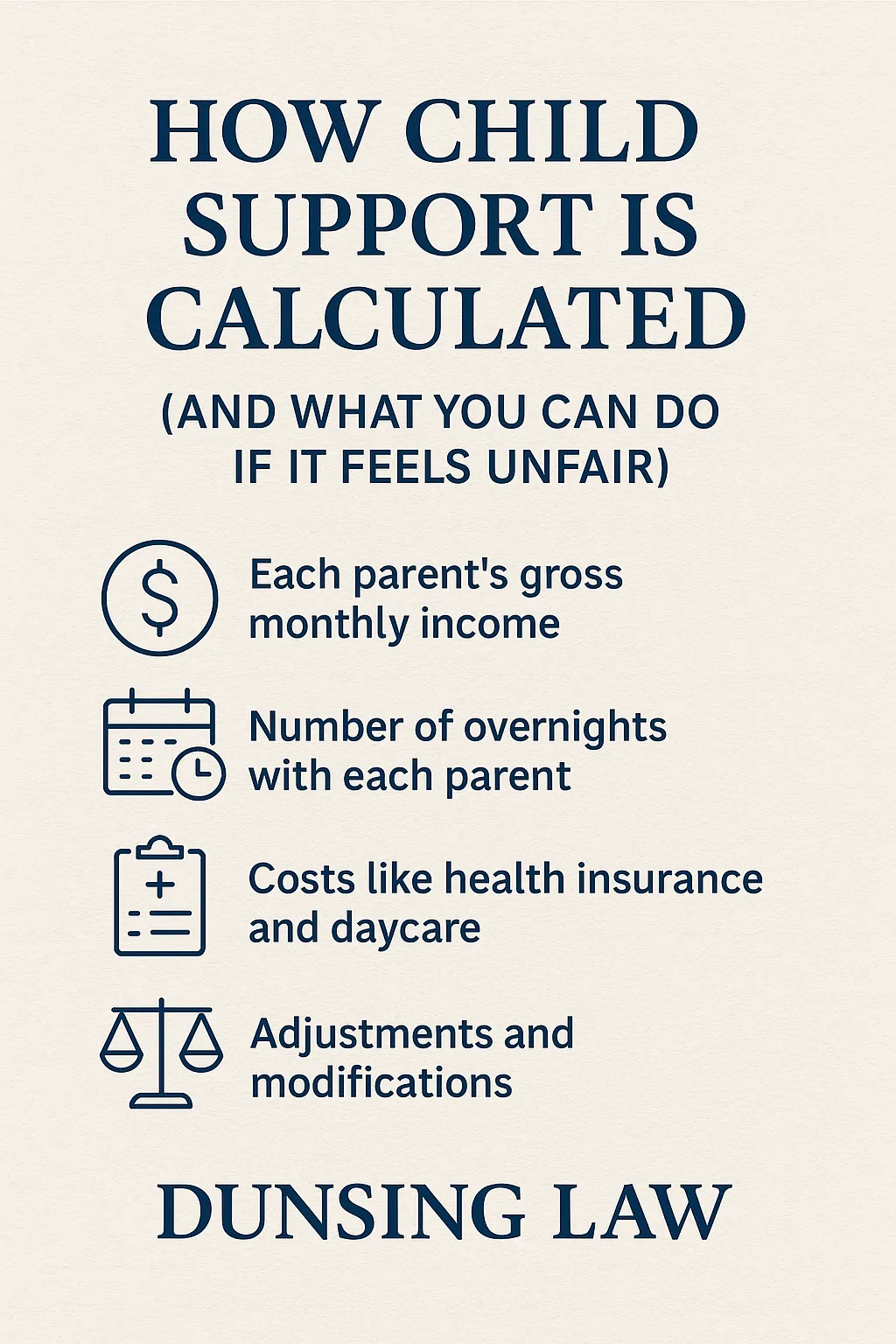
How Child Support is Calculated
How Child Support is Calculated (And What You Can Do if It Feels Unfair)
A plain-English guide to child support formulas, income rules, and legal adjustments.
When families go through divorce or separation, few topics are as emotionally charged as child support. Whether you're the parent receiving or paying it, you want what's fair—for your child and for you. But “fair” can feel complicated when child support numbers seem rigid or don’t reflect your real financial situation.
This post breaks down how child support is calculated in Colorado, what factors go into the formula, and what legal steps you can take if something doesn’t seem right.
The Basics: Colorado’s Child Support Formula
Colorado uses an “income shares model” to determine child support. This approach estimates what both parents would have spent on the child if they lived together and splits that cost proportionally based on income.
Here’s what the court looks at:
🔷 Each parent’s gross monthly income
Gross income includes wages, bonuses, commissions, self-employment earnings, unemployment benefits, and more. It doesn’t include public assistance, child support received for other children, or income from a new spouse.
🔷 Number of overnights with each parent
Parenting time directly affects support calculations. More overnights usually means less money owed, since both parents are contributing to the child’s care more evenly.
🔷 Costs like health insurance and daycare
If one parent pays for the child’s health insurance or childcare, that’s factored in and credited accordingly.
🔷 Other children and obligations
Courts consider whether either parent has other children they support, or court-ordered obligations like alimony or prior child support.
What If the Numbers Don’t Feel Fair?
While the formula is standardized, life isn’t. That’s why the law allows for modifications and adjustments in certain cases. Here are your options if child support feels off:
1. Request a Modification
If there’s been a “substantial and continuing change” in circumstances—like a job loss, major income increase, or change in parenting time—you can ask the court to modify the order. The change must affect the payment by at least 10%.
2. Challenge the Income Calculation
Sometimes the other parent may underreport income (especially with self-employment), or the court may impute income you don’t actually earn. In these cases, a legal challenge with proper documentation may help.
3. Use Deviation Clauses
In rare cases, the court may approve a deviation from the standard formula. You’ll need to show that the calculated amount is unjust or inappropriate based on the unique facts of your situation.
4. Hire a Family Law Attorney
Having a lawyer who understands the system can make a big difference. They can review your case, help you gather financial records, and represent your interests in court.
The Bottom Line
Child support is meant to serve the best interests of your child, but the process should also respect your reality. If the numbers seem off, don’t assume there’s nothing you can do. Colorado law allows for modifications, reviews, and legal challenges when the formula doesn’t tell the whole story.
At Dunsing Law, we help parents across Denver and the Front Range navigate child support disputes with compassion and clarity. Whether you’re establishing support or seeking a fair adjustment, we’re here to guide you through it.
Need Help with a Child Support Issue?
Contact Dunsing Law today for a confidential consultation. We’ll review your situation and help you understand your rights, your options, and the best next steps.
📞 Phone: (303) 807-1242
📍 Address: 1776 South Jackson Street, Denver, CO 80210
🌐 Website: www.dunsing-law.com